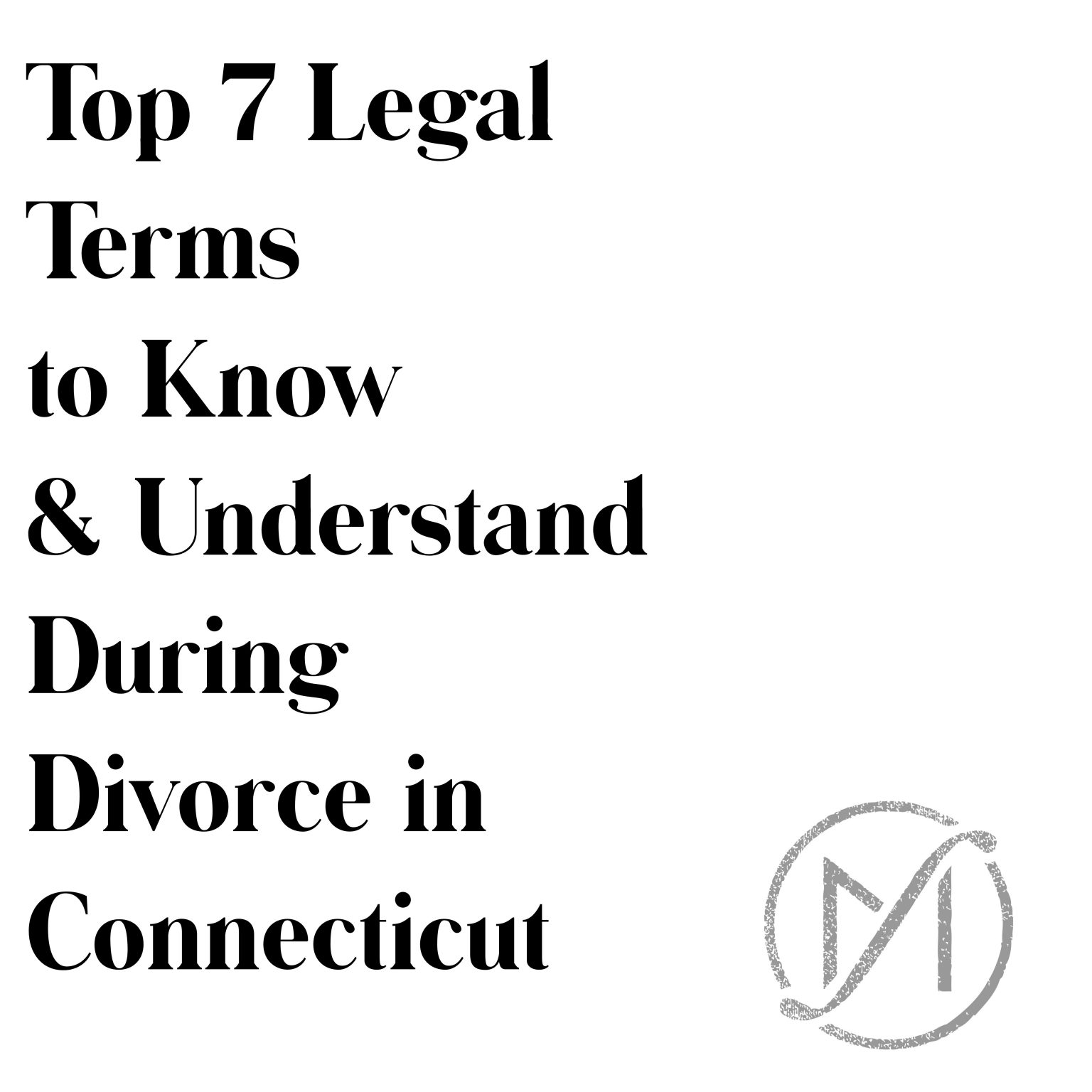Top 7 Legal Terms To Know & Understand During Divorce in Connecticut

Suppose you are thinking about filing for divorce, or you’ve already been served with your spouse’s petition. In that case, there are legal terms in Connecticut divorces that you should know in order to properly communicate your needs and understand what your spouse is asking for. Although your divorce attorney will guide you during the settlement negotiations, understanding the terminology involved will help empower you to actively participate in creating your new future.
So, without further ado:
Top 7 Legal Terms in Connecticut Divorces
Alimony
Alimony is financial support paid to a spouse as part of the divorce process. In Connecticut, temporary alimony, known as “pendente lite,” is sometimes awarded during the settlement proceedings. Once the divorce is finalized, a judge can order temporary or permanent alimony for a set amount of time.
Child Custody
Child custody is the legal arrangement for the care of children from the marriage. It indicates which parent a child will live with (if not both) and how decisions about them will be made. There are two types of custody, legal and physical.
- Legal custody: refers to a parent’s right to make important decisions about a child’s upbringing, such as the medical care they receive, where they go to school, and what religious faith they are brought up in.
- Physical custody: addresses where a child will live on a regular basis.
Essentially, legal custody refers to having the power to make decisions about how a child should be raised. Physical custody relates to where a child lives, and when. Unless there is a reason to decide otherwise, Connecticut courts generally prefer to award joint legal custody to both parents.
It’s important to note that the legal term “child custody” is becoming less common in Connecticut divorces and custody actions.
Child Support
Parents have a legal obligation to support their children financially, even if they separate or divorce. Child support is a series of payments that one parent pays the other to cover the costs of caring for the children. In Connecticut, the court will combine the net weekly incomes of both parents, look at the number of children requiring support, and consult the Schedule of Basic Child Support Obligations to arrive at a basic child support figure.
Equitable Distribution
Connecticut is an equitable distribution state, meaning that marital property and debt are divided in an equitable, or fair, manner. It is important to note that this is not the same thing as a 50-50 split.
Marital Property
Marital property consists of the assets that are subject to equitable distribution when divorce occurs. This property includes but is not limited to the marital home, real estate, businesses, bank and investment accounts, and retirement accounts.
Parenting Plan
The Parenting Plan, also known as “visitation,” explains the parenting schedule and when each parent spends time with their children.
Pendente Lite
Pendente lite is a Latin term meaning “awaiting the litigation” or “pending the litigation” which applies to court orders which are in effect while a divorce is pending. For example, there may be “pendente lite” child support or alimony in place while the divorce is ongoing.
Next Steps
These are some of the most common legal terms in Connecticut divorces. You will likely encounter these, and more, during your divorce. Never fear — at Freed Marcroft we give you the information and support you need to actively make informed decisions about what you need and deserve to set yourself up for a strong and happy future. To speak to a team member today, START HERE.








